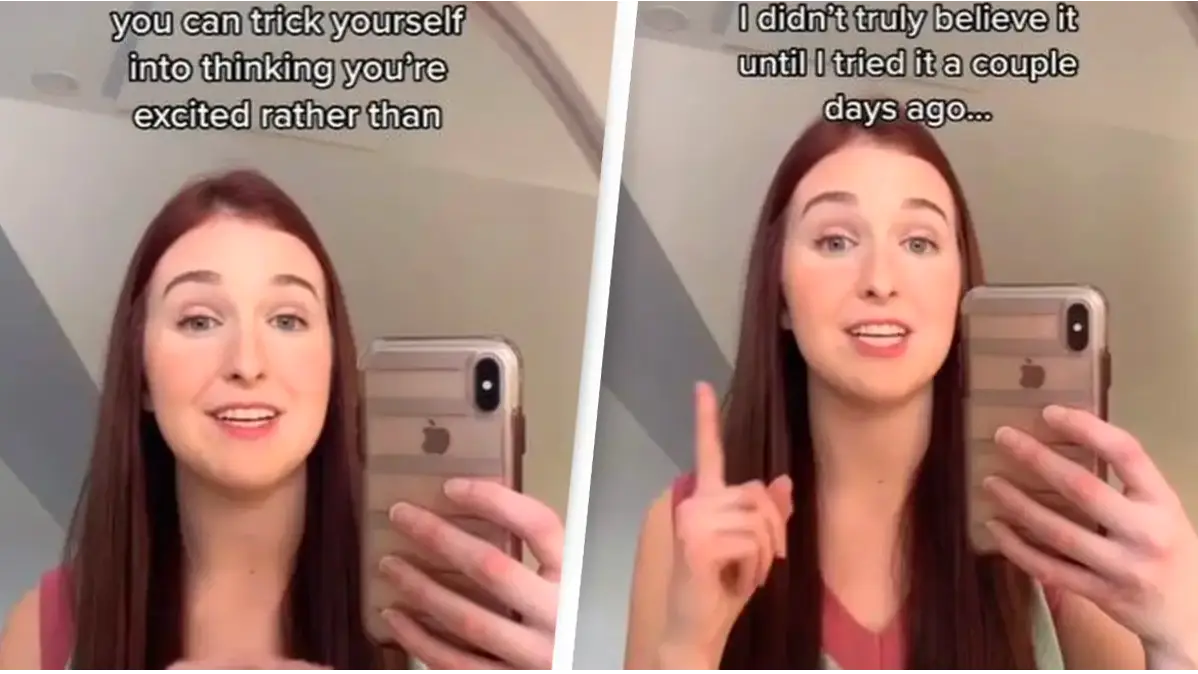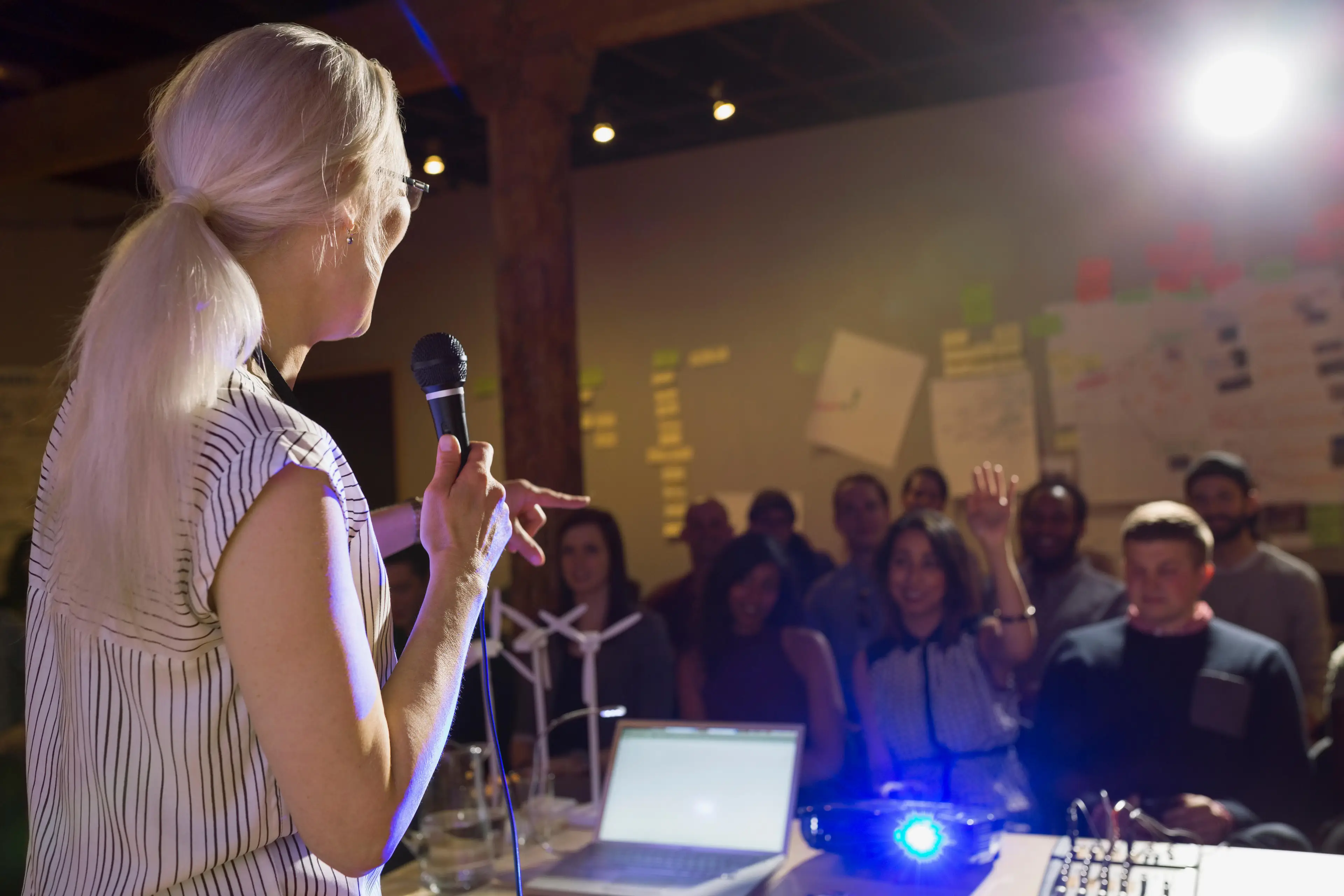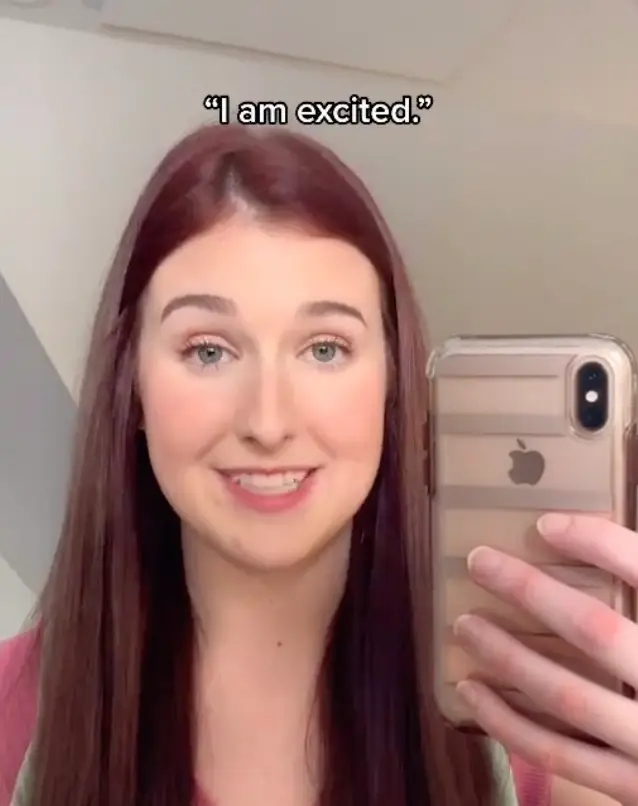
A psychology student has revealed how you can trick your mind into thinking you’re not nervous anymore using just three words.
Mollie Trainor, a TikToker and dancer who completed a masters degree in psychology, explained the concept in a video.
Prepare to be mind-blown:
Advert
Mollie posted the video while studying her masters in response to another user who asked: "Social scientists, what is one thing you know to be true about human behaviour that you just can't accept is true?"
The hack is so simple that Mollie couldn't believe it was true until she tried it herself and it worked.

She said: "Did you know if you have pre-performance anxiety for something coming up - maybe you’re nervous for a presentation or something - you can trick yourself into thinking you’re excited rather than nervous by just saying out loud to yourself 'I am excited'."
The reason for this, she explains, is because excitement and nervousness are both ‘high arousal’ states.
The technique is called anxious reappraisal.
"Physiologically, what’s happening to you between the two of them is pretty similar. So it’s easy to get your brain to reinterpret those signals as excitement rather than nervousness," Mollie said.
This works better than just telling yourself to ‘calm down’ because calmness is a ‘low arousal’ state, she adds.
The TikToker said she truly didn’t believe it until she tried it herself and it worked.

"The first thing you learn in psych is that humans are both more and less complicated than you’d think," she wrote.
One 2013 study, carried out by a student at Harvard Business School, tested the theory in a number of anxiety-inducing situations.
"Whereas anxiety is a negative, aversive emotion that harms performance, excitement is a positive, pleasant emotion that can improve performance," the study’s author Alison Brooks wrote.
Brooks continues: "Anticipating the negative consequences of feeling anxious, many individuals attempt to down-regulate anxiety by trying to calm down.
"But decreasing anxious feelings is difficult because high arousal is automatic, and suppressing or hiding anxiety is often ineffective.
"Unlike anxious versus calm feelings, which differ in high versus low arousal, anxiety and excitement are arousal congruent, and minimal interventions may be sufficient to produce feelings of excitement."

Her findings showed that in most study participants, reframing anxiety as excitement was more effective than trying to calm down.
She found that this reframing actually improved participants’ performance in situations like public speaking, singing and performing math tasks.
Over on TikTok, Mollie clarified that this only works for pre-performance anxiety and isn’t intended for those who suffer from anxiety disorders.
A number of users commented saying they had often used this technique and it worked.
"I had surgery last week. I literally told everyone 'I am excited!' leading up to it. It was a major surgery, but I had zero anxiety going into it," one person wrote.
Another said: "I also didn't believe it when my lecturer told me. Tried it and works for me like a charm."
Topics: Health, Mental Health, Social Media, TikTok, Viral, Life